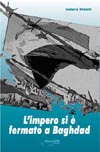AAN, January 8, 2011
A new study has shed light on the massive surge in post-war birth defects in Fallujah, Iraq, showing for the first time that an epidemic of reproductive abnormalities has likely been caused by the presence of metals in the environment, potentially from the residues of munitions used by American armed forces on the city in 2004.
 A team of four researchers: environmental toxicologist Mozhgan Savabieasfahani of Ann Arbor, Samira Alaani of Fallujah General Hospital, Mohammad Tafash of Al-Anbar University in Fallujah, and geneticist Paola Manduca of the University of Genoa in Italy, conducted the study, which has drawn international attention from outlets such as the British Broadcasting Corporation (BBC), Al Jazeera, and The Guardian newspaper of London.
A team of four researchers: environmental toxicologist Mozhgan Savabieasfahani of Ann Arbor, Samira Alaani of Fallujah General Hospital, Mohammad Tafash of Al-Anbar University in Fallujah, and geneticist Paola Manduca of the University of Genoa in Italy, conducted the study, which has drawn international attention from outlets such as the British Broadcasting Corporation (BBC), Al Jazeera, and The Guardian newspaper of London.
The results were recently published in the peer-reviewed International Journal of Environmental Research and Public Health and show a major rise in chronic, devastating birth defects of the neural, cardiac, and skeletal variety at a rate about 11 times higher than originally estimated.
A total of 547 births in Fallujah General Hospital showed that 15% of babies born in May had massive birth defects, compared to the world average of 2-3%, according to the study, and the rates rose sharply in the first half of 2010.
 The study, which surveyed a total of 55 families with seriously deformed newborn babies in May through August through a questionnaire to delve deeper into the causes, shows that metals are potential sources of contamination causing the defects, especially in pregnant mothers within the city, and concludes that they "could be due to environmental contaminants which are known components of modern weaponry."
The study, which surveyed a total of 55 families with seriously deformed newborn babies in May through August through a questionnaire to delve deeper into the causes, shows that metals are potential sources of contamination causing the defects, especially in pregnant mothers within the city, and concludes that they "could be due to environmental contaminants which are known components of modern weaponry."
Washington has officially denied the claims of the study, however.
Dr. Savabieasfahani, who graduated from New York University with a PhD in environmental and reproductive toxicology and did post-doctoral work at the University of Michigan-Ann Arbor, added that the rates appear to be increasing to even higher levels, although it's hard to tell for certain because of a lack of additional work research.
The study called for an urgent examination of metals in the city and a comprehensive review of its recent reproductive history.
Savabieasfahani said she is worried that the problem will continue to grow and lead to widespread misery when taking into account all aspects of the problems it creates, including emotionally and financially, on families, along with other health problems.
"People who live in Fallujah and who are in this study are actually more privileged because they have access to hospitals," she said. "If this kind of devastation is seen in people with means and privileges then how is it affecting the poor and those with no access to health care?
"I'm afraid of the masses of Iraqi people suffering a lot more and the extent of the problem is not yet known."
Savabieasfahani contacted the hospital after watching a story about the subject on the BBC and began to conduct the study with the help of her three colleagues independently.
She believes that the findings are especially important because it provides another voice alongside a forthcoming study from the World Health Organization (WHO).
"What is important to know is that the World Health Organization has been called upon to do studies but their credibility has been questioned in the past because they have suppressed information about depleted uranium specifically," she said.
"No matter what they do in the future should be under question in my opinion."
Depleted uranium is a radioactive substance that is difficult to dispose of and has been used to make military shells harder in order to increase their ability to penetrate surfaces.
Savabieasfahani is hoping that other scientists across the country and internationally will invest their time in researching the birth defects epidemic and other similar topics in order to provide more viewpoints and find answers to help people of war-torn nations.
She is well known in Ann Arbor for her activism with the Boycott, Divestment, and Sanctions movement against Israeli products as a means to help stop Israel's illegal occupation of Palestinian lands and assaults on the Gaza Strip during which Israel has been accused of war crimes by Amnesty International for using similar weapons to those used in Iraq.
White phosphorus, a banned weapon used in Gaza, was also used in Fallujah, although the study didn't point the finger specifically at the deadly substance for birth defects. White phosphorus has been known to cause horrific injuries to civilians, however. Depleted uranium has been found in the systems of Palestinian victims as well.
As a result of the Fallujah study, Savabieasfahani hopes that more independent research will done so that the official source of the health problems can be identified and help can be administered to the devastated population of the area.
She said that surgeries to correct similar problems in the United States can cost about $70,000, but many of the defects in Iraq are life-threatening and beyond fixing. A clean-up would likely be the best option, although the sources and locations of the contaminants must be found first.
The Italian researcher in the study, Manduca, agreed with Savabieasfahani in comments made about the study via e-mail to The Arab American News.
"As to people (and movements, including the veterans from these wars), the first response (should be) to ask for further information about the components of weapons utilized (the equivalent to ask for the map of mined fields, a request legitimized by the international laws for the protection of populations)," Manduca said.
"In addition, (they should) ask international bodies that have have the tools and money, like WHO, the United Nations Environment Program, (human rights commissions and other organizations), to investigate with transparent modalities, protocols, and selections of scientific teams.
"As to independent scientists, the first response should be to investigate further, ask for funding to do so, and mostly to do it."
Savabieasfahani hopes that others will join her or be inspired to pursue their own research the subject and other similar topics. She can be reached at bahar@umich.edu.











 A team of four researchers: environmental toxicologist Mozhgan Savabieasfahani of Ann Arbor, Samira Alaani of Fallujah General Hospital, Mohammad Tafash of Al-Anbar University in Fallujah, and geneticist Paola Manduca of the University of Genoa in Italy, conducted the study, which has drawn international attention from outlets such as the British Broadcasting Corporation (BBC), Al Jazeera, and The Guardian newspaper of London.
A team of four researchers: environmental toxicologist Mozhgan Savabieasfahani of Ann Arbor, Samira Alaani of Fallujah General Hospital, Mohammad Tafash of Al-Anbar University in Fallujah, and geneticist Paola Manduca of the University of Genoa in Italy, conducted the study, which has drawn international attention from outlets such as the British Broadcasting Corporation (BBC), Al Jazeera, and The Guardian newspaper of London.  The study, which surveyed a total of 55 families with seriously deformed newborn babies in May through August through a questionnaire to delve deeper into the causes, shows that metals are potential sources of contamination causing the defects, especially in pregnant mothers within the city, and concludes that they "could be due to environmental contaminants which are known components of modern weaponry."
The study, which surveyed a total of 55 families with seriously deformed newborn babies in May through August through a questionnaire to delve deeper into the causes, shows that metals are potential sources of contamination causing the defects, especially in pregnant mothers within the city, and concludes that they "could be due to environmental contaminants which are known components of modern weaponry." 





